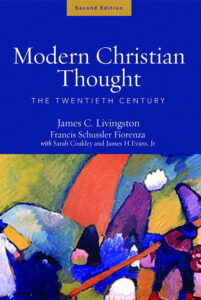With the emergence and development of Dialectical theology, it is apparent that early German Reformers and Liberal theologians had a lasting and permanent influence upon 20th-century theology. The chapter stretches across the time of socialist thought around theological meaning at a time it underwent a remarkable change for the better. The cultural degradation of society marked the inferior theology of liberalism and social doctrines as it sought meaning in the absence of God and His divine revelation through His inspired Word.
At the forefront of the Dialectical Theology movement was Karl Barth (1886-1968). He was a German Reformed Protestant Theologian who opposed the Nazi’s National Socialist movement in his native Deutschland. He was the most influential theologian of the twentieth century. His notoriety began with an encounter of betrayal as he observed 93 German intellectuals and his teachers as signatories of the Nazi war policy of Kaiser Wilhelm and Chancellor Bethmann-Hollweg. Barth stood up for Jews and other oppressed people while he viewed the compromise of his leaders as an ethical failure. He had concluded that 19th-century German theology was gone and of no further interest, so he set about to develop a “Theology of Crisis,” which is also understood as “Theology of the Word of God.” Both titles were correlated to the name and meaning of Dialectical Theology.
After the onset of the First World War in 1914, Barth found himself at the head of a theological revolution with the formation of a Dialectical Theology program with fellow contemporaries. The national socialist policy had a lasting and devastating impact on him, and the credibility of his theological leadership was lost. In the 1920s, Barth organized and led a group of young theologians as he counted his leadership within liberal socialist theology of Herrmann, Weiss, Troeltsch, and Schleiermacher as completely corrupted. Barth remained adherent to the Socialist Democrat Party while developing a new theology as the Bible came alive to him during a period of rediscovery of Scripture as divine revelation. While he functioned as a pastor and head of Reformed theology at Gottingen (1921), his continued progression toward opposition of the German National Socialist movement led to his exile. Eventually, he taught theology at the University of Basel, Switzerland, until retirement. Barth’s developed theology led to his rejection of socialism and its inherent effect of oppression upon people and economic injustices.
Within the formation of Dialectical theology, the notion of “Wholly Other” originated from Barth and was positioned among those who recognized a dire need for theological revolution. The biblical revelation of God as wholly other moved Barth to cast a different sort of reality less favorable to socialistic ideals. Moreover, entrenched social theologians who objected to Barth’s views about divine revelation through the “Word of God” spared no criticism. Barth’s detractors were numerous and persistent while sympathy and interest in Dialectical theology grew. “Crisis Theology” introduced doubts about subjectivism and the corresponding personal religious experience advocated by Schleiermacher while students, peers, and younger theologians demonstrated a loss of confidence in culture and state religion.
As a matter of course, a new generation of dialectical and liberal theologians arose to counter one another. They were divided on a number of subjects, but of critical interest was faith and modern historical consciousness. To the liberal theologians, it was important to understand the historical Jesus as it was necessary for faith in Christ. Advocates for theological historicism extended their rationale that knowledge of God, including moral and religious principles, definitively appears through relationships within biblical history. Rather from God as the source of divinely inspired revelation.
Friedrich Gogarten (1887-1967), a co-founder of dialectical theology, was a defender of Barth’s work while against the historicism of liberal theologian Ernst Wilhelm Troeltsch (1865-1923) of the German Democratic Party. As Livingston uses painstaking and extraordinarily elaborate prose to describe the dispute between Gogarten and Troeltsch’s views about the passage of time and God’s use of it, it becomes clear that the liberal and social theologians’ Jesus is a product of history and His place within the unfolding of time is requisite to knowing Him (i.e., as a counter to divine revelation through Scripture where Christ is within history). God instantiates and uses events and the passage of time to telegraph theological messaging as He is situated within it as the person of Christ. Still, He is wholly other or transcendent from creation to include time itself.
The crux of the dispute between Gogarten and Troeltsch appeared as the difference between the relative and absolute passage of time. Where, to Troeltsch’s view, the relationship between history and revelation of God was somehow mutually exclusive. As Troeltsch’s frame of reference was squared upon a social and subjective worldview, God’s work and existence in Christ had to be within the parameters of time and place where people were set in history. To understand their relationships with one another and with God was to become informed about how God provided theological truth. Whereas to Gogarten and Barth, the testimony and witness of Scripture revealed theological truth within history to situate absolute events and passage of time as prescribed for necessary outcomes (i.e., theological truth by divine revelation). “The ‘historical Jesus’ reconstructed from the records is not identical to revelation, to the act of God, which cannot be directly perceived in history” (Livingston, 71).
The Dialectical Method is a third way between dogmatism and mysticism or liberalism and orthodoxy. It doesn’t propose immediate solutions, but it leads to better-formed questions and a more coherent premise of thought around what God reveals about Himself. The wholly other God as present within our existence of space and time is revealed in a limited way through Christ, Creation, and Scripture. Yet, an inner and direct understanding of God is unattainable while in this plane of existence, and He cannot be fully known within this finite realm. To adopt the dialectical method is to embrace paradoxical expressions and works of God and what becomes comprehensible to us by His revelation.













